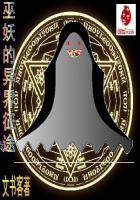Ath. Then to them we will say no more. And now we are to address himwho, believing that there are Gods, believes also that they take noheed of human affairs: To him we say-O thou best of men, inbelieving that there are Gods you are led by some affinity to them,which attracts you towards your kindred and makes you honour andbelieve in them. But the fortunes of evil and unrighteous men inprivate as well as public life, which, though not really happy, arewrongly counted happy in the judgment of men, and are celebratedboth by poets and prose writers-these draw you aside from your naturalpiety. Perhaps you have seen impious men growing old and leaving theirchildren"s children in high offices, and their prosperity shakesyour faith-you have known or heard or been yourself an eyewitness ofmany monstrous impieties, and have beheld men by such criminalmeans from small beginnings attaining to sovereignty and thepinnacle of greatness; and considering all these things you do notlike to accuse the Gods of them, because they are your relatives;and so from some want of reasoning power, and also from anunwillingness to find fault with them, you have come to believe thatthey exist indeed, but have no thought or care of human things. Now,that your present evil opinion may not grow to still greaterimpiety, and that we may if possible use arguments which may conjureaway the evil before it arrives, we will add another argument tothat originally addressed to him who utterly denied the existence ofthe Gods. And do you, Megillus and Cleinias, answer for the youngman as you did before; and if any impediment comes in our way, Iwill take the word out of your mouths, and carry you over the river asI did just now.
Cle. Very good; do as you say, and we will help you as well as wecan.
Ath. There will probably be no difficulty in proving to him that theGods care about the small as well as about the great. For he waspresent and heard what was said, that they are perfectly good, andthat the care of all things is most entirely natural to them.
Cle. No doubt he heard that.
Ath. Let us consider together in the next place what we mean by thisvirtue which we ascribe to them. Surely we should say that to betemperate and to possess mind belongs to virtue, and the contrary tovice?
Cle. Certainly.
Ath. Yes; and courage is a part of virtue, and cowardice of vice?
Cle. True.
Ath. And the one is honourable, and the other dishonourable?
Cle. To be sure.
Ath. And the one, like other meaner things, is a human quality,but the Gods have no part in anything of the sort?
Cle. That again is what everybody will admit.
Ath. But do we imagine carelessness and idleness and luxury to bevirtues? What do you think?
Cle. Decidedly not.
Ath. They rank under the opposite class?
Cle. Yes.
Ath. And their opposites, therefore, would fall under the oppositeclass?
Cle. Yes.
Ath. But are we to suppose that one who possesses all these goodqualities will be luxurious and heedless and idle, like those whom thepoet compares to stingless drones?
Cle. And the comparison is a most just one.
Ath. Surely God must not be supposed to have a nature which hehimself hates?-he who dares to say this sort of thing must not betolerated for a moment.
Cle. Of course not. How could he have?
Ath. Should we not on any principle be entirely mistaken in praisingany one who has some special business entrusted to him, if he have amind which takes care of great matters and no care of small ones?
Reflect; he who acts in this way, whether he be God or man, must actfrom one of two principles.
Cle. What are they?
Ath. Either he must think that the neglect of the small matters isof no consequence to the whole, or if he knows that they are ofconsequence, and he neglects them, his neglect must be attributed tocarelessness and indolence. Is there any other way in which hisneglect can be explained? For surely, when it is impossible for him totake care of all, he is not negligent if he fails to attend to thesethings great or small, which a God or some inferior being might bewanting in strength or capacity to manage?
Cle. Certainly not.
Ath. Now, then, let us examine the offenders, who both alike confessthat there are Gods, but with a difference-the one saying that theymay be appeased, and the other that they have no care of smallmatters: there are three of us and two of them, and we will say tothem-In the first place, you both acknowledge that the Gods hear andsee and know all things, and that nothing can escape them which ismatter of sense and knowledge:-do you admit this?
Cle. Yes.
Ath. And do you admit also that they have all power which mortalsand immortals can have?
Cle. They will, of course, admit this also.
Ath. And surely we three and they two-five in all-haveacknowledged that they are good and perfect?
Cle. Assuredly.
Ath. But, if they are such as we conceive them to be, can wepossibly suppose that they ever act in the spirit of carelessnessand indolence? For in us inactivity is the child of cowardice, andcarelessness of inactivity and indolence.
Cle. Most true.
Ath. Then not from inactivity and carelessness is any God evernegligent; for there is no cowardice in them.
Cle. That is very true.
Ath. Then the alternative which remains is, that if the Gods neglectthe lighter and lesser concerns of the universe, they neglect thembecause they know that they ought not to care about suchmatters-what other alternative is there but the opposite of theirknowing?
Cle. There is none.
Ath. And, O most excellent and best of men, do I understand you tomean that they are careless because they are ignorant, and do not knowthat they ought to take care, or that they know, and yet like themeanest sort of men, knowing the better, choose the worse because theyare overcome by pleasures and pains?
Cle. Impossible.
Ath. Do not all human things partake of the nature of soul? And isnot man the most religious of all animals?
Cle. That is not to be denied.
Ath. And we acknowledge that all mortal creatures are the propertyof the Gods, to whom also the whole of heaven belongs?
Cle. Certainly.















